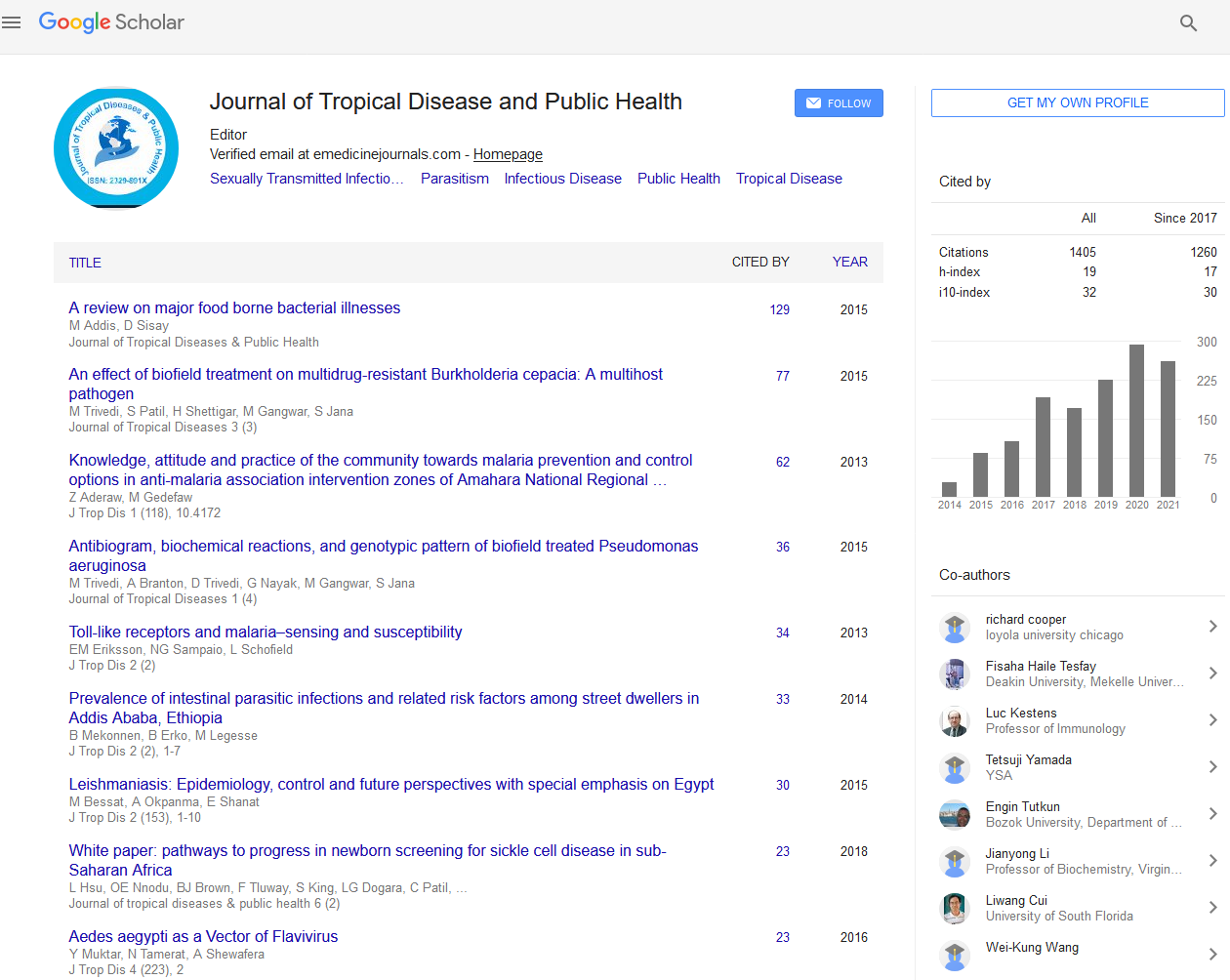Indexed In
- Open J Gate
- Academic Keys
- ResearchBible
- China National Knowledge Infrastructure (CNKI)
- Centre for Agriculture and Biosciences International (CABI)
- RefSeek
- Hamdard University
- EBSCO A-Z
- OCLC- WorldCat
- CABI full text
- Publons
- Geneva Foundation for Medical Education and Research
- Google Scholar
Useful Links
Share This Page
Journal Flyer

Open Access Journals
- Agri and Aquaculture
- Biochemistry
- Bioinformatics & Systems Biology
- Business & Management
- Chemistry
- Clinical Sciences
- Engineering
- Food & Nutrition
- General Science
- Genetics & Molecular Biology
- Immunology & Microbiology
- Medical Sciences
- Neuroscience & Psychology
- Nursing & Health Care
- Pharmaceutical Sciences
Abstract
Behavioral Risk Factors of Hypertension among Pastoral and Agro Pastoral Adult Communities, Eastern Ethiopia, Somali Regional State, 2016
Wubareg Seifu, Mohamed Hussein, Muhumed Ibrahim and Ali Sigale
Background: Hypertension is a growing public health problem in many developing countries including Ethiopia. However, its prevention and control has not yet received due attention. The overall objective of the study was to assess prevalence of behavioral risk factors of hypertension among adults in Jigjig town, Somali region state, Eastern Ethiopia, from May to June, 2016.
Materials and methods: A community based cross sectional study was conducted from May to June 2016 among 330 adults of 20 years old and above residing in Jigjiga town using multistage sampling technique. Data were collected through face to face interview after verbal informed consent was taken. Additionally physical measurements such as blood pressure, weight and height of the participants were measured following standard procedures. Odds ratio with 95% confidence interval was estimated using multivariable logistic regression to identify independent predictors of hypertension.
Result: The overall prevalence of hypertension was 13.3% (95% CI: 10.90-15.70). Among all hypertensive people identified, 12 (28.57%) were newly screened. Family history of hypertension [AOR: 25.0 (11.65 - 98.12)], individuals who did not engaged in any kind physical activity [AOR: 16.24 (2.12 - 99.12)] and Khat chewers [AOR: 1.98 (2.987 - 5.456)] were behavioral risk factors associated with hypertension.
Conclusion: There was a high prevalence of hypertension probably indicating a hidden epidemic in this community. Family history of hypertension, Khat chewing and physical inactivity was behavioral factors associated with hypertension in this study. Hence launching a strategy to screen at least adults visiting health institutions for other reasons is paramount to identify new cases. As well health education on hypertension risk reduction should be done by promoting healthy life styles such as regular physical exercise and avoiding khat chewing.


